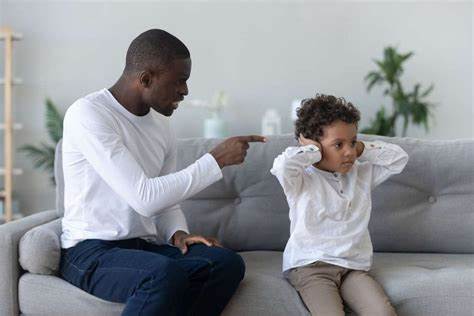 Dads Get the Baby Blues Too: Becoming a dad is the greatest and proudest moment of a man’s life! While there are feelings of undying love, they might also be accompanied by feelings of anxiety, fear, distress, sadness, and pressure. When fathers experience mental illnesses, their children are at higher risk of behavioral and emotional difficulties. The magnitude of this risk is equivalent to when mothers experience mental illness. In recent years, maternal mental health has gotten the attention it deserves thanks to public awareness efforts. Postpartum depression or “baby blues” is a phrase most of us associate with mothers. The shocking reality is that up to 25% of dads will experience some degree of postpartum depression. 70% of fathers say that their stress levels increased within twelve months of becoming a father. What’s more, 24% of fathers say that their stress levels increased significantly. To make matters worse, many fathers don’t recognize the correlation between stress and their ability to function. They lack trust in the health system and meaningful relationships with other men. Many fathers consider it taboo to talk openly about mental health issues. Fathers with untreated mental health symptoms may have difficulties in their romantic relationships, friendships, and employment. If untreated, postpartum struggles in men could prevent fathers from fully bonding with their babies. My Brother’s Keeper of Greater Richmond facilitated a virtual workshop entitled, “Fathers It’s Okay to Not Be Okay!” during Mental Health Awareness Month in May 2022. The purpose of the workshop was to raise awareness about the impact of stress on fathers. We provided a safe environment for fathers to openly discuss the daily issues they face. Tips and resources to help them become more mindful of their mental health were provided. During the workshop, 23 fathers participated in a powerful open discussion on the transition into fatherhood. The forum helped men understand the psychological and physiological changes that occur in them when they begin fathering. “Many men are not aware that they were experiencing postpartum depression symptoms,” said Coach Stephan Hicks, Executive Director of My Brother’s Keeper of Greater Richmond. Fathers who participated told us that they experienced depression, general anxiety, depression, PTSD, mood swings and loss of control after the birth of their child. They felt overwhelmed with expectations of a new father, additional responsibilities, social perceptions, and life goals made them feel like the weight of the world is on their shoulders. One father told us he was “upset, distressed and unable to cope very well. It was a feeling about the fragility of life during the birth and the overwhelming nature of the birth and the subsequent days.” Fathers also told us that they don’t get the support they need due to lack of father-centered resources in the community. Another reason was that they fail to recognize their need for support and lack safe environments to talk about their struggles. Meaningful relationships with other men are almost non-existent. Adapting to fatherhood can feel like a heavy burden for fathers who are supporting their partners' physical and mental needs. The need to be a "rock" while struggling mentally and emotionally can be overwhelming. According to the American Academy of Child & Adolescent Psychiatry, parental mental illness elevates a child’s risk of developing mental illness relative to their peers, and when both parents are mentally ill, the child is even more likely to follow suit. (Regis College Faculty, 2021) Outcomes from our discussion indicate that fathers feel that they are not carefully considered when it comes to providing information and support regarding their own postnatal mental health, including the impact of birth trauma, and for helping their partner should she need support. Fathers felt alienated and had little knowledge about how to support their partner during this time. Therefore, it's essential for fathers to recognize they are experiencing postpartum depression or “baby blues”, take the appropriate course of action, seek resources when needed and not isolate themselves. Fathers need to be aware of the signs:
0 Comments
 Discipline is about helping children learn how to behave. Many fathers we work with have a misguided view of discipline. It is one of the most misunderstood topics and one that results in many fathers being referred to our program. Their discipline style is based upon how they were raised in a different time and different context. They never evaluated whether the discipline they experienced was appropriate or effective in shaping their behavior. Let's begin by establishing that discipline derives from the Latin word "disciplus" which means to teach and guide, not designed to threaten, and harm our children. One of the biggest lessons I learned is: RULES without RELATIONSHIP equals REBELLION! Discipline works best if you have warm and loving relationships with children. Babies need warm and loving care to feel safe and secure. For toddlers and older children, discipline means setting limits and consequences and encouraging good behavior. Here are the ten discipline strategies I have learned over the years:
Spanking and harsh words are harmful and don't work. Here's why: Spanking's unhealthy cycle: Instead of teaching responsibility and self-control, spanking often increases aggression and anger in children. A study of children born in twenty large U.S. cities found that families who used physical punishment got caught in a negative cycle: the more children were spanked, the more they later misbehaved, which prompted more spankings in response. Spanking's effects may also be felt beyond the parent-child relationship. Because it teaches that causing someone pain is OK if you're frustrated—even with those you love. Children who are spanked may be more likely to hit others when they don't get what they want. Lasting marks: Physical punishment increases the risk of injury, especially in children under 18 months of age, and may leave other measurable marks on the brain and body. Children who are spanked show higher levels of hormones tied to toxic stress. Physical punishment may also affect brain development. One study found that young adults who were spanked repeatedly had less gray matter, the part of the brain involved with self-control, and performed lower on IQ tests as young adults than the control group. Verbal abuse: Yelling at children and using words to cause emotional pain or shame also has been found to be ineffective and harmful. Harsh verbal discipline, even by parents who are otherwise warm and loving, can lead to more misbehavior and mental health problems in children. Research shows that harsh verbal discipline, which becomes more common as children get older, may lead to more behavior problems and symptoms of depression in teens. Consider these tips and put them into your Discipline Toolbox |
Minister Stephan HicksA passionate leader, facilitator, coordinator, spiritual mentor, men’s motivational speaker, life coach, trainer, and a leading authority in “authentic manhood / fatherhood”. ArchivesCategories |
 RSS Feed
RSS Feed